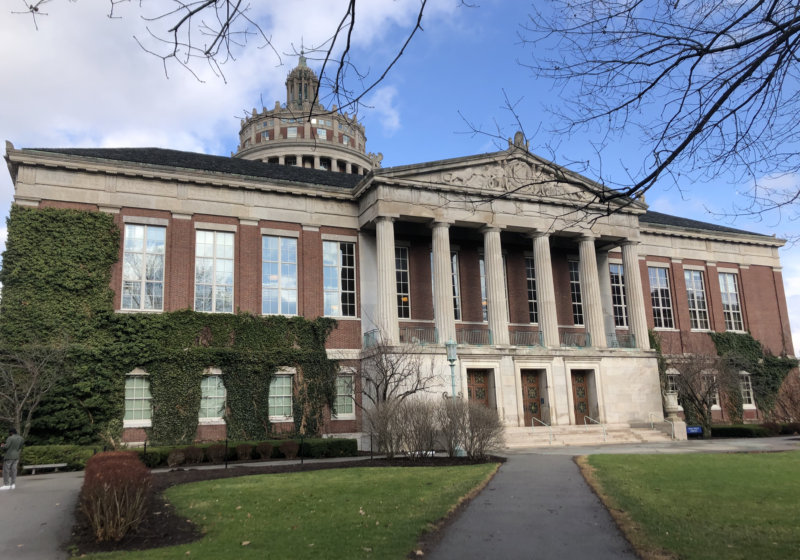Rush Rhees is our hive, Yellowjackets, and we are its humble worker bees. Starbucks and Connections are our honey, even though — yes, I know — yellowjackets don’t produce honey.
Not to reiterate something that UR students are acutely aware of, but for the next few minutes, it needs to be in the forefront of your mind: UR has a strong academic culture, and it’s a lot of work. Students here spend a lot of time studying.
UR students spend a lot of time studying because we have to. We don’t want to spend our weekends in the library, our nights (and often mornings) on problem sets and readings, or any spare time we have on more work and more studying, but it just takes that long. The academics at UR demand huge chunks of space in our Google Calendars.
While the warm weather that graced our campus this week has pushed us all outside, the library is an essential space. I have high praise for River Campus Libraries and all the work they’ve done to keep the libraries running during COVID-19. They’ve done an excellent job.
But the current hours of the libraries are ridiculous, especially given how students are spending more time on their laptops than ever.
The library shouldn’t just be open from 8 a.m. to 10 p.m. in some parts, and open until midnight in others — the library should always be open and accessible to the UR community. A student should always have a place to study, and the library should be that place.
I do think the argument that not having a library open 24/7 supports student mental health and encourages healthy sleep patterns is valid, and, yes, a 24/7 library could encourage unhealthy behavior. A cap on how much time students spend in the library could positively impact our mental health.
However, the current cap hurts students by not giving us the spaces we need for success. Students that use the library as a place to take exams can end up in quite the pickle if their exam starts at 8 a.m. and their instructor says to log on to Zoom at 7:50.
I’m actually speaking from experience, because last Tuesday I had to scramble to find a quiet place to take my math exam instead of my usual library backdrop.
When it’s possible to complete an entire semester from behind a computer screen, the library should always be accessible for students.
Some of us cannot focus in our rooms, and know that we need to take ourselves to a place where we’re not distracted. Some of us also have roommates, who we might not want to disturb. Roommates can have very different schedules, and different study routines and sleep schedules can create conflicts. Our rooms aren’t always the best places to study, do homework, or take tests, and the library is usually the next best option.
The library is a safe haven for studying, and having the library open for longer hours could help our mental health, too. It’s not healthy to be trapped inside our rooms all day on Zoom calls, working, and potentially only leaving for sustenance. The library provides a space right now where we can escape the unhealthy isolation of our rooms. Just waving to a person you know on your way to Rush Rhees can be a saving grace.
I suggest having the library open from at least 7 a.m. (to give students a place to take their morning exams) to 2 a.m. on the weekdays and 1 a.m. on the weekends. I think that while 24/7 libraries should be considered in the future, right now, they encourage unhealthy behavior and worsen the burnout we’re all feeling. Besides, it’s not like it’s a COVID-19 concern, as the wee hours of the morning are when the library is least busy.
Return to the fact I asked you to keep in your mind at the beginning: this school is incredibly academically demanding. UR can’t reasonably expect us to put in the amount of time our workloads demand without offering a place for us to work in.
The library is that place. It’s our hive, because we’re all very busy bees, who spend a lot of time working hard.






